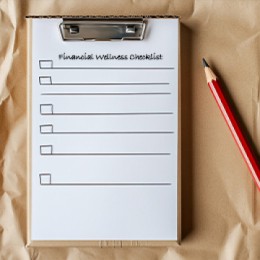
Just because it’s a seller's market doesn’t mean it’s not a good time to buy, if you’re ready. Right now there will be homes popping up faster than you know it, even more so since Spring is here. Being prepared now means you’ll be ready when you find that home of your dreams!.
Where do I start?
First things first - determining your needs and wants in a home and setting a budget. If you’re buying a home with another person, you’ll want to talk about everything before beginning the process.
Ask yourself these questions:
- Do you want a home that is move-in ready or are you looking for something with character that needs some updating?
- Will you be doing updates yourself or will you need extra funds to hire someone?
- How much house can you afford? Consider not only your monthly mortgage payment but also taxes, insurance, and utilities that you may not be paying now.
- Where do you want to live? What part of town? Do you want to lessen your commute to work or are you okay with making it longer?
- Are you thinking about having a family in the future? If so, consider the surrounding school district or neighborhood.
The list may get longer once you start talking about it – but you’ll want to talk about every little detail beforehand so that you’re not staring at a house wondering if it meets all of your needs. Next, you’ll want to do some research and get a preapproval.
Do some research.
One size doesn’t fit all and that is especially true for the mortgage process! There are different types of mortgages: Conventional, FHA, VA and RD (Rural Development) loans. Multiple factors could qualify you for programs in your state that offer down payment assistance, assistance in paying closing costs, tax credits and other options. Do your research and see what you may qualify for to save some money!
One key factor in a mortgage loan approval is your credit score. Credit standards for obtaining a mortgage are more stringent compared to other consumer loans. Mortgage loan officers will also tell you to avoid opening any new trade lines as keeping your credit intact during the mortgage process is critical. Typically, there will be two credit pulls, one at the time you apply and another one at the time of closing.
Once you’re pre-qualified for a mortgage make sure to get a preapproval letter. This shows the estimate the lender is willing to loan to you which illustrates to your realtor and potential sellers that you’re serious in buying.
Consider the costs:
The first expense everyone commonly knows about is the down payment. Most people assume they need to 20% down, but many mortgage lenders will allow much less these days, sometimes as little as 3%. However, putting down less than 20% may cause you to pay higher mortgage insurance costs. Use our mortgage loan calculator for an estimate of what your mortgage may look like with the down payment you have.
Hopefully, you have started saving up for your down payment, after all, it is such a big investment, but there are other expenses you’ll need to take care of before or at the time you close on a mortgage. Here are some expenses to consider:
- A deposit or earnest money to show the current homeowner good faith in continuing with the loan process and closing on the home you’ve put an offer on.
- Closing costs such as appraisal fees, loan fees, home insurance premiums, property taxes, title and recording fees and more.
Remember, sometimes you can negotiate with the seller to pay some or all of the closing costs depending on your agreement.
Once you’ve found “THE” one, don’t forget about move-in expenses! It’s best to keep a reserve of money that could help you buy things such as furniture, appliances, new paint and other updates or improvements you may want to make when moving in.
What should I know about an agent or realtor?
A realtor can be a great asset in the mortgage process. They know the neighborhoods, how much houses are going for and will likely have a good idea of whether a house will sell quickly or sit on the market a while. Realtors typically can provide pretty good insights on a house that may not be online.
Although most realtors are working towards their commission, you’ll want to find a realtor you trust. Try getting a recommendation from a family member or friend first.
How long is the homebuying process anyway?
There are two separate processes in the mortgage process. The first part of finding the home is on you. That could take days, weeks or months depending on your preferences and what you find on the market. The other process is the loan process itself. After choosing 'the one’, the time from contract to closing takes anywhere from 30-45 days. Typically, no longer than 60 days. Here are some of the items for your timeline:
- Negotiating price and putting in your offer (1-5 days)
- Signing contracts (1-3 days)
- Appraisals and inspections (7-10 days)
- Loan underwriting and processing (21-30 days, sometimes more)
Once all of the underwriting and approval processes are complete, your closing date is set and the moving in can begin, usually very soon after.
While the idea of purchasing a home can be exciting and scary all wrapped into one, the thing that should help ease your mind through the process is having a good team around you. CSE would love the opportunity to work with you through the process and get you in your first, next, or dream home as pain-free as possible.











0 comments